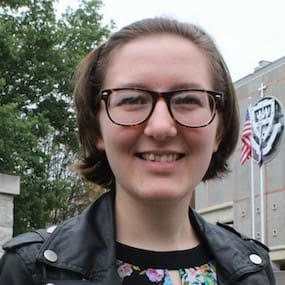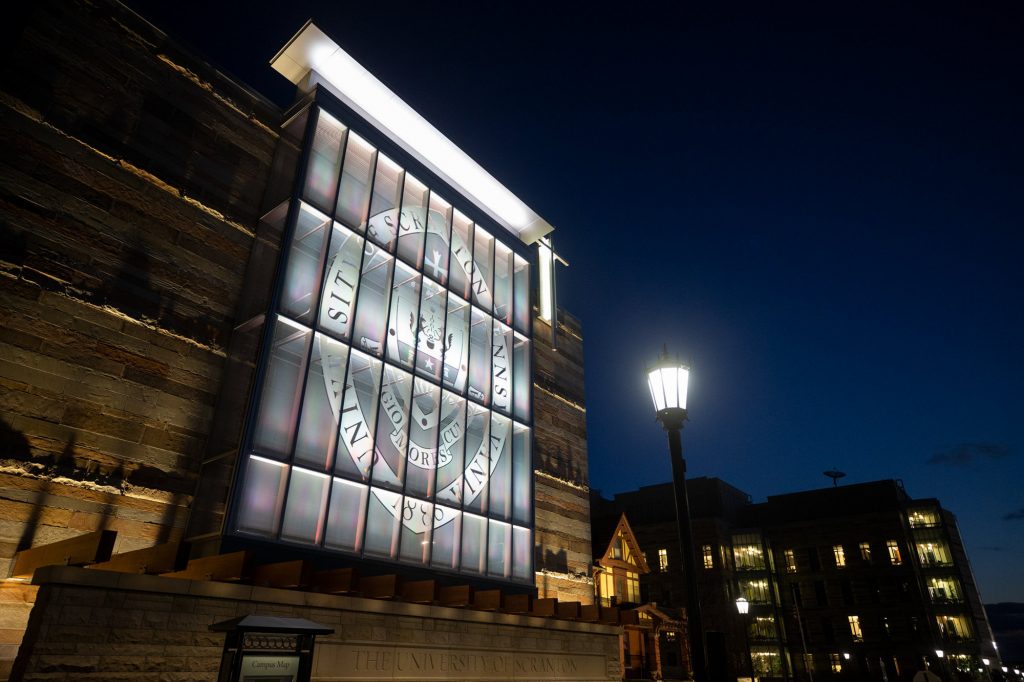BY ALEXIS WARD
The sun was supposed to set on my college career in a blaze of glory.
As I faced my final semester as an English major at University of Scranton, the tapestry of my education I had spent the past four years weaving would at last come together, and my to-do list was a mile long. I had final spaces on the dreaded CAPP sheet to fill; an undergraduate honors program thesis to complete; the Sigma Tau Delta International Convention to attend in sunny Las Vegas; a Times-Tribune internship to complete; send-off concerts to perform, including my last World Premiere show as part of Performance Music Director Cheryl Boga’s choir; banquets to celebrate; and, of course, friends with whom I had to make my very last memories before we dispersed like seeds on the wind, off to become doctors, philosophers or carnival clowns.
Little did I know that in mid-March the class of 2020 would be thrown into confusion.
The Rev. Scott Pilarz, S.J., U of S president, announced on the cusp of spring break that the university would close until April as coronavirus cases accelerated throughout the United States. In the following days, the operative word would be “canceled.” Goodbye to the Sigma Tau Delta convention. Goodbye to my internship, at least in person. Goodbye banquets, the World Premiere, my friends. Packing up our dorm rooms with all that we thought we would need for an extended spring break, no one knew when we would return to the campus that had nurtured us for the last four years.

SUBMITTED PHOTO
University of Scranton senior Alexis Ward
My classmates in the Special Jesuit Liberal Arts Honors Program, whom I have known since we were all baby-faced freshmen, were some of the hardest hit. On what we would later learn was to be our final in-person class together, forever, we threw an impromptu pizza party, crying and reminiscing on what the program had meant to us. One student remarked that he felt homeless. Lost. Unmoored.
For others, the change in plans impacted them more seriously. My honors research could continue from the comfort of my bed, but some students were not so lucky; my roommate and many of my honors program colleagues had to suspend or cancel their research because of the shutdown. I can work for the newspaper remotely, but Starbucks baristas and library assistants now find themselves suddenly out of their part-time jobs. Professors scrambled to find a means for discussion-based and public speaking courses to function online.
Here’s something you ought to know about my hometown of Standing Stone Twp.: it’s wilderness. Historically farmlands nestled between the tiny towns of Wysox and Wyalusing, the township now has a population of 600 spread out over 16 square miles. This makes it wonderful for the purposes of that new buzzword, “social distancing.” I can walk three miles down a dirt road and not encounter another soul. However, it’s absolutely terrible for online learning.
In rural areas lacking the population or infrastructure to draw larger companies, internet accessibility is low. Only Frontier, teetering on the verge of bankruptcy, offers service to my area, so users must contend with random drops in service and painfully slow download speeds. The browser-based conference program Bongo that one professor asked our class to use launched after half an hour of rebooting the Wi-Fi, and Zoom’s video conferencing offered a pixelated picture of my classmates’ faces, their voices robotic and garbled.
Among these frustrations, I also feared for my family. My parents are baby boomers, retirees in otherwise good health who could nevertheless be brought down by the virus and our county’s dire lack of the necessary equipment. My 65-year-old aunt lives in a monastery in Brooklyn, the current ground zero for coronavirus cases; she video called over Facebook one day looking like a first responder, decked out in a mask and disposable gloves. My grandmother, 92, wipes down her groceries when the store delivers.
But even with these difficulties, in the midst of mourning over senior-year memories that would never be, I saw my friends and classmates get creative. Using conference software, my SJLA class hosts an online weekly “Happy Hour” to visit and see each other’s faces after so many weeks away. My friends organized Discord servers to play Jackbox party games and slaughter digital zombies together. The university’s literary journal, the Esprit, of which I am a part, rebranded itself the E-sprit and will be published this semester with a staff of hardworking online editors.
I can’t say quarantining at home didn’t also provide me opportunities. Working from my bed with the door open, I have more time with my family members, who stop by to chat or say hello when I stop in the kitchen for another cup of tea. My beagle sleeps on the rug at my feet, my cat curled on my lap and sprawling herself over the keyboard. I have even found a new hobby in biking up and down the township’s hills, watching the budding trees start to blossom and the squirrels scatter in the undergrowth as I pass.
Time slows. I notice things I haven’t noticed before. Are those crocuses pushing up their purple heads from the grass? Hiking, I find a perfectly shaped pinecone and pick it up, seeing the way the dew collects in its crevasses. Can I ID that old tree in the backyard? Let me pull those weeds from the garden. Maybe we’ll plant tomatoes this year in the sun.
Instead of thinking about what we’ve lost, perhaps quarantine will be what makes us find what’s important to us.




